News from 2015-03-24 / KfW Development Bank, Sustainability
Protecting forests, helping people
KfW is helping to preserve biodiversity in Laos and Vietnam
The small village of Photang in Laos is situated near to the road. Huts are built on stilts and children dressed in shorts and T-shirts run barefoot across the sparsely cultivated ground. Some women are carrying babies in their arms, while washing has been hung up to dry in windows. Beneath the setting evening sun, the farmer Amhalang Buan scatters seed amongst his chickens, which run around in disarray and peck eagerly at the feed. "Chicken-breeding gives me an extra source of income to feed my family," he says proudly with a laugh.
The village he lives in with his wife and five children is in the direct vicinity of the Xe Sap National Park in Laos. The park covers a vast area, is home to rare species of flora and fauna and borders Central Vietnam. The large forest areas help to reduce greenhouse gas emissions and thus to protect the climate. But both diversity and biodiversity are under threat – as a result of slash-and-burn, illegal logging and poaching. Together with the environmental protection and nature conservation organisation WWF, KfW Development Bank is supporting a programme that aims to help protect the Laotian national park, three other parks in Vietnam and two forest corridors, and also to help preserve biodiversity, as part of the International Climate Initiative (ICI) run by the Federal Ministry for the Environment (BMUB).
"Another aspect of the project involves providing people living in neighbouring villages with new sources of income," explains Fanie Bekker, Director of the programme, who is originally from South Africa and has many years of experience in nature protection and animal conservation. The "income-generating programmes" aim to deter the population from entering national parks with the intention of conducting poaching or illegal logging activities. There are signs of success in the village of Photang. At a meeting, the villagers explain that they are now increasingly growing bananas and rice or are even breeding chickens. These activities are how they earn a living nowadays. Previously, they explained, they would often go into the forest to collect fruit or cut timber – due in part to the fact that they were unaware of the conservation area’s boundaries.
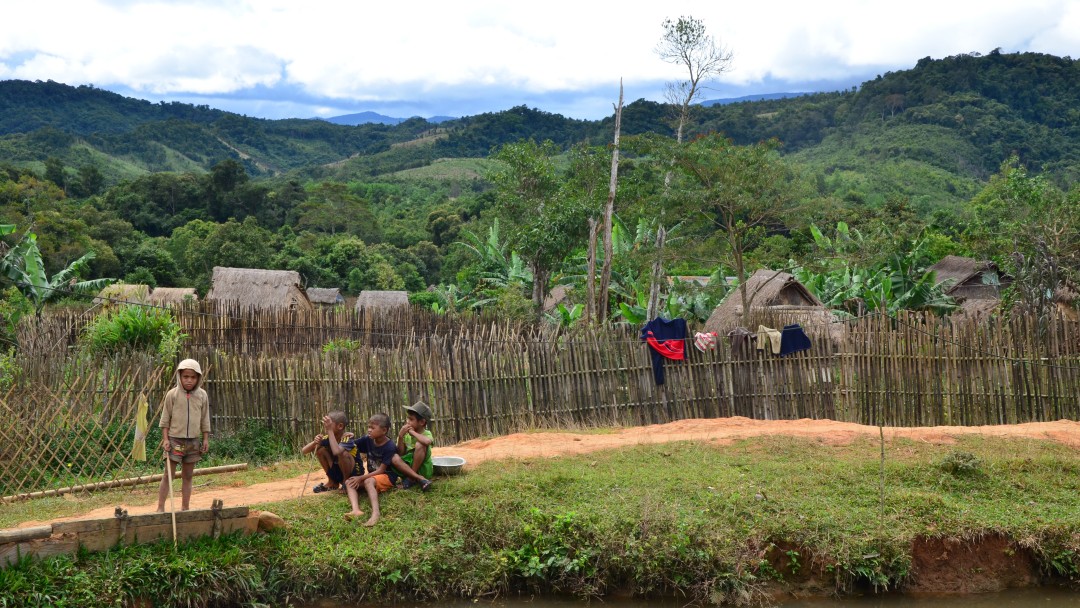
Village residents given new sources of income
Villager participation is a key component of conservation area management, which is the focal point of the project. Management plans are being developed, gamekeeper stations are being set up and Laotian and Vietnamese youths are being trained to become rangers. There is a simple outpost for young rangers near the village of Photang, too. The outpost provides them with a place to bed down – in sleeping bags, on thin mattresses on the ground and, in most cases, under a mosquito net. "The young men regularly go on patrol from the outpost," explains Fanie Bekker, particularly to scare off poachers and to protect the wildlife population. In both Vietnam and Laos, the rangers have destroyed more than 50,000 animal traps and around 1,000 illegal camps while on patrol.
But poaching is not the only issue. Illegal logging in particular is a problem. The timber trade is extremely important in Laos and Vietnam – so much so, that more and more forest areas are being destroyed. Consequently, the collection of extensive logging-related data forms an integral part of the project. The data is collected at local level with the knowledge and support of forest authorities. Additionally, the project partner WWF has conducted an extensive study, also using satellite imagery, to examine the nature and extent of deforestation and logging.
The data shows that a large proportion of the timber traded clearly comes from "unidentifiable sources". An even more comprehensive monitoring system is to be developed in close collaboration with the Vietnamese and Laotian authorities, with a view to taking even stronger action against potential illegal trade.
Woodland needs more than just protection; reforestation is important too. In Vietnam, over 50 hectares of land has been planted with new indigenous trees. More than 300 families or village communities have been granted rights to use forest areas that they created themselves.
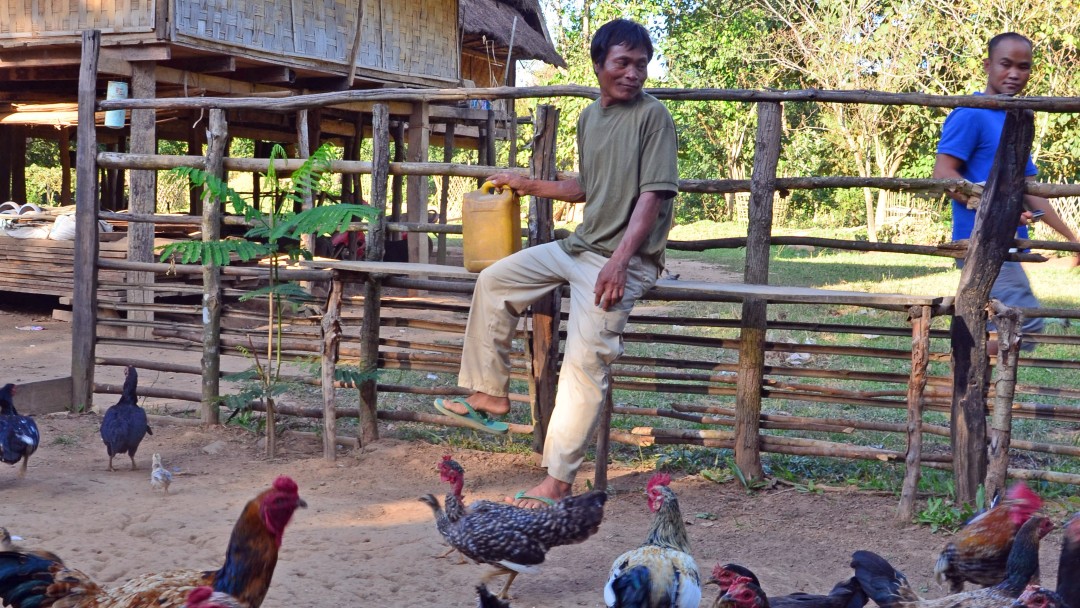
Young rangers patrol national parks and install camera traps
People's commitment to getting involved in nature conservation is also clear to see in the village of Aho. To get there, you need to follow an uneven dirt track, which runs along streams and over rickety bridges built with tree trunks. This village is no different, as many residents earn additional income by breeding fish and growing vegetables. From the village square, you have a clear view of the lush greenery in the mountains of the neighbouring national park.
A narrow trail leads from the village into the park. The young ranger Kakeo Phimmaben rapidly runs ahead with his colleagues, who are clothed in green overalls. He stops at a small stream, where he explains what exactly the young men do when out on patrol. Not only do they destroy animal traps and illegal camps; they also collect the leeches, which are a frequent occurrence here during the rainy season. The animals are sent to a Chinese laboratory, where they are analysed to determine their hosts. This allows for conclusions to be drawn as to the biodiversity in the park.
The young ranger is particularly proud of the camera traps they install in the park, which take photos when an animal runs past in the traps’ direct vicinity. In the last year, one of these cameras captured an image of the saola, an extremely rare species of bovine, which was believed to be almost extinct. "That was a major discovery for us," enthuses Fanie Bekker. The photos taken by these hidden cameras also confirmed the presence of black bears in the area.
Text: Michael Ruffert
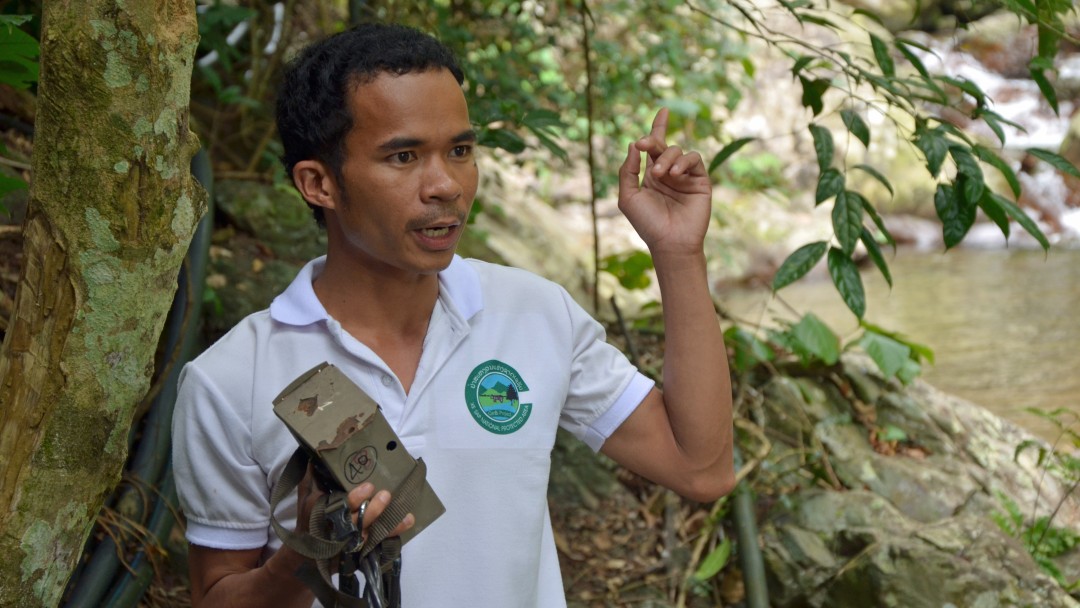

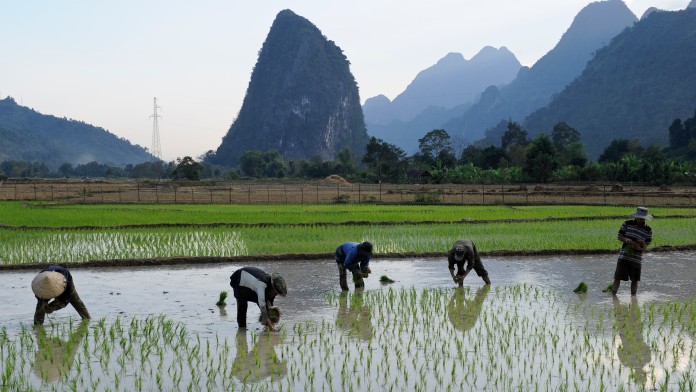
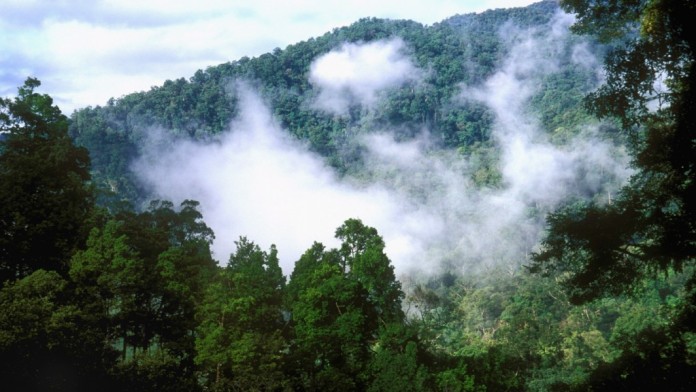
Share page
To share the content of this page with your network, click on one of the icons below.
Note on data protection: When you share content, your personal data is transferred to the selected network.
Data protection
Alternatively, you can also copy the short link: https://www.kfw-entwicklungsbank.de/s/enzBWrMC.BBGB
Copy link Link copied